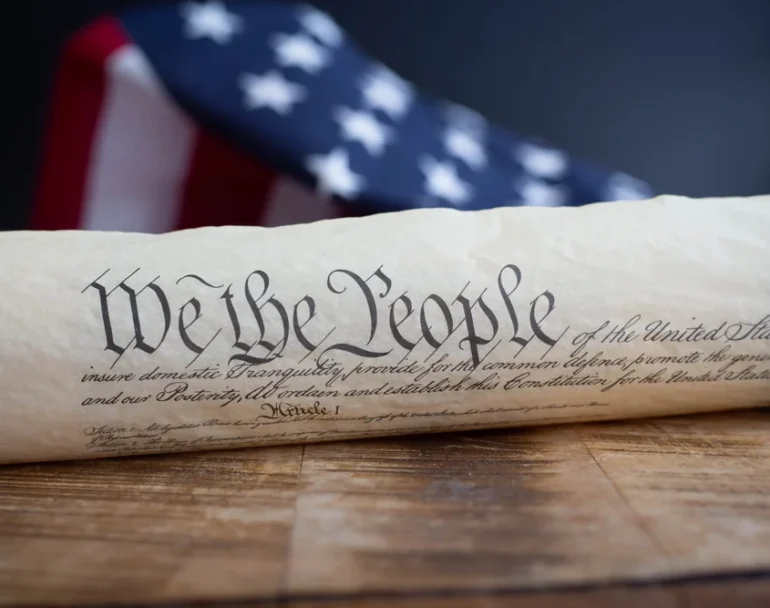
December Is a Good Time to Celebrate the American Revolution
This month includes the anniversary of a historic action taken by the British Crown that contributed significantly to our American Revolution.
No, the action was not one of those that we normally think of in this regard. It was not the Stamp Act of 1765 that imposed a tax on all papers and official documents in the American colonies. Nor was it the Townsend Acts of 1767 that taxed goods imported to the American colonies. Indeed, it was none of the royal abuses listed in the Declaration of Independence to justify our break from Great Britain.
The royal act in question that helped set the stage for the revolutionary events of 1776 occurred on December 16, 1689, when King William III and Queen Mary II gave Royal Assent to the Bill of Rights. This was the statutory form of the Declaration of Right that the Convention Parliament had presented to William and Mary in February 1689, inviting them to become joint sovereigns following the deposition of King James II and the culmination of the Glorious Revolution that confirmed the primacy of Parliament over the Crown.
The Bill of Rights is based to a great extent on John Locke’s Two Treatises of Government, which were published in 1690. Locke was a close advisor to William in Holland, and he personally escorted Mary from Holland back to England following the deposition of her father.
The text of the Bill of Rights plainly reflects the influence of Locke and the political philosophy that would later inspire the Founders and find clear expression in our Declaration of Independence, throughout the American Revolution, and in the framing of the Constitution. For example, the Bill declares that:
- “Suspending the laws or the execution of laws . . . without consent of Parliament is illegal.”
- Levying money for or to the use of the Crown . . . without grant of Parliament . . . is illegal.”
- “It is the right of subjects to petition the king . . . and prosecutions for such petitioning are illegal.”
- “Subjects . . . may have arms for their defense suitable to their conditions and as allowed by law.”
- “The freedom of speech and debates . . . in Parliament ought not to be impeached or questioned in any . . . place out of Parliament.”
- “Excessive bail ought not to be required, nor excessive fines imposed, nor cruel and unusual punishments inflicted . . . [and] . . . jurors ought to be duly impaneled.”
In summation, the Bill declares that “all the rights and liberties asserted and claimed . . . [herein] . . . are the true, ancient and indubitable rights and liberties of the people of this kingdom . . . .” The entire text of the 1689 Bill of Rights can be found here.
When Michael Barone published his splendid account of the Glorious Revolution in 2007, he chose to title his book, Our First Revolution: The Remarkable British Upheaval That Inspired America’s Founding Fathers. This is certainly an appropriate title for an engaging narrative that elucidates the extraordinary extent to which our own American Revolution was influenced by tumultuous events that had occurred many decades before.
So, before we turn all our attention to the holidays, we should pause and reflect at least for a while on the courageous and committed persons who brought our “First Revolution” to success in December, 333 years ago.